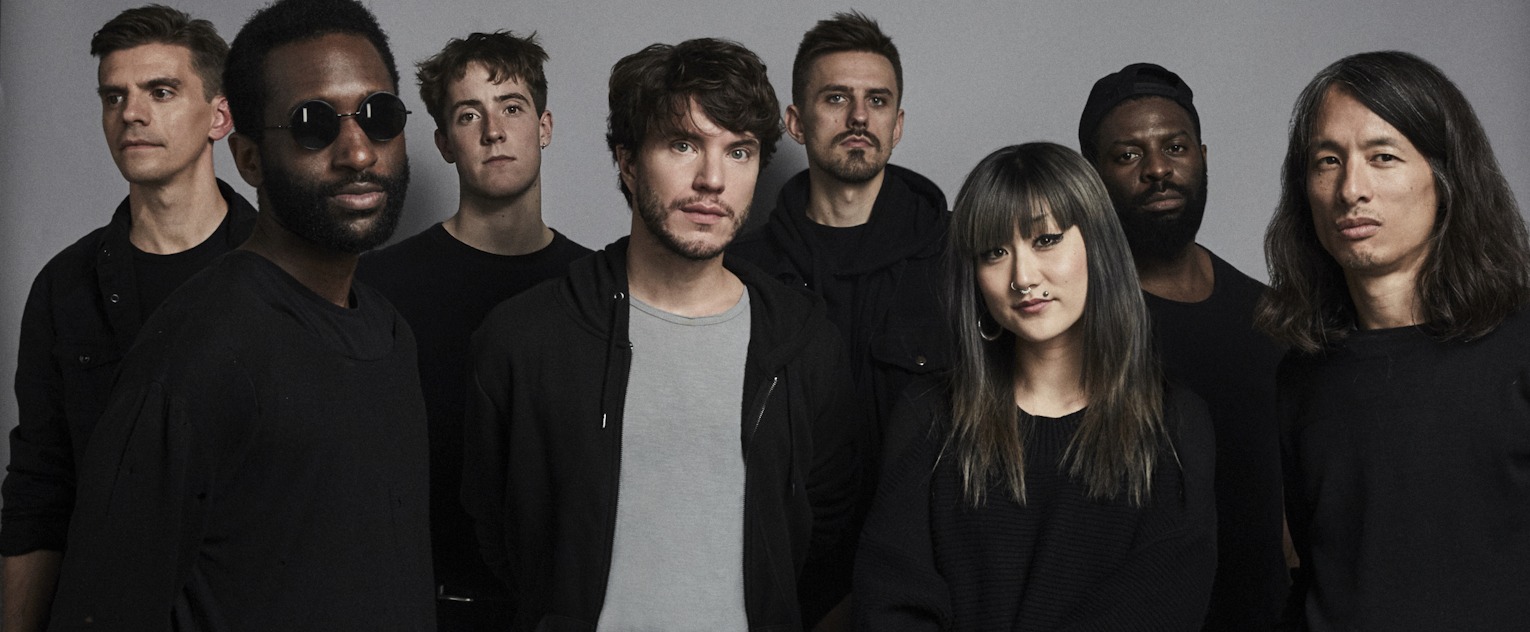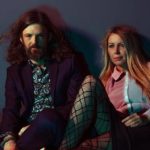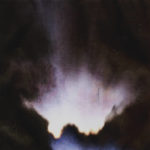Miro Shot are a London based electronic/technology collective who specialise in a unique indie-pop sound, unafraid to write about what matters to them. With two fantastic singles ‘Heaven’s Gate’ and ‘I Used To Say Things To Strangers’ – Miro Shot have just launched their debut album CONTENT on the 1st of May. I asked them a handful of questions about their album, their process, and dug deep to find out more about this interesting collective.
Tell me about your new song, ‘Heaven’s Gate‘, and your album CONTENT.
Heavens Gate is about the death of the old music industry, the way it has tried to change, and some of the ways it has failed to adapt. That particular song is the point on the album where the band sort of turns itself inside out.
Startups and tech companies have become more powerful than nations – they are shaping art, politics and even our sense of who we are. When we started working on this album, the idea behind the “band as a startup” was originally just a survival move, since then its become an entirely new way for us to exist. When the opportunity came up to turn the band into a startup it just made sense.
Miro Shot was set up as an experiment – the argument is that if the music industry has become another tech industry, then as artists we have a responsibility to take these tools and push them to their breaking points. Bands should be able to use the tech world to get their messages across.
Our VR/XR shows are only part of the story, we started to meet designers, coders, filmmakers and musicians who were doing amazing things on their own, and we wanted to see what happened when we focused the collective on one thing. We are in an incredible moment in history, everything is being disrupted and everything is new again – its as exciting as it is terrifying.
What was your experience like in putting the album together?
It feels like we lived inside this album for a while before sharing it with the world, so its become a sort of metaphor for why we all came together, and the reason we are all friends.
If you’re listening to that record you’re listening to the birth of the group, of all the things we were individually going through and trying to make sense of-good things and bad. We went from this insular little gang to a band sharing what we had made with the outside world. Writing music in this way is a cross between falling in love and being involved in a car crash, either way, you don’t look at the people involved in the same way afterward.
We also have been lucky enough to work with some of the most incredible people for this record. Mary Wilson from the Supremes is someone who we never thought we would be able to get on our album – we knew the album needed this “classic” counterpoint, where we offset all this futuristic stuff with something that was almost gospel (a slightly futuristic, hyper-real gospel).
What was the first song you ever wrote?
I wrote a song on a cracked copy of Fruity Loops where I took a cello part from Remedy’s Max Payne and put a beat to it. It was the first time I used a sample, and it utterly blew my mind.
What was it like?
If you were to listen to it now it would probably sound like an absolute nightmare, but as a 14-year-old it was basically the moment I found my religion.
What’s your local music scene like?
As a band we are spread between London and Paris- it’s amazing how opposite those two cities have become over the last 5-6 years. London’s venues are shutting down, rehearsal rooms are expensive, pubs no longer have live music, mostly because you can make a lot more money selling overpriced cocktails to twats in Office Casual shirts than you can putting on a band and selling their mates jaeger bombs and Snakebite.
Meanwhile, in Paris you can see incredible live bands, go to somewhere like La Cigale and watch huge acts with fantastic production values, then go to a warehouse party that costs a tenner. Parisians will tell you it’s starting to change and things are not as good as they were – but then that’s something you can always rely on Parisians for – slagging off Paris.
How would you describe your music in five words?
Non-Dystopian Pixel-Gaze Music
Which artists do you admire?
Gregory Crewdson for the attention to detail he puts into his photos, Adam Curtis for the way he can take archive footage, music, and a bit of dialogue and say more than films that cost millions of dollars to make. In terms of music its Jim Alxndr, Max Fry, Flying Lotus, Flaming Lips
What would be your dream collaboration?
Flying Lotus, Greyson Perry, Brian Eno, Tame Impala, Sleaford Mods, Tropical Fuck Storm, Damon Albarn and Charlie Brooker.
What’s the best band you have played with so far?
It’s hard to have a favourite when you see different bands doing such ambitious things, but we played a gig with this guy called The Junk E Cat who makes all his beats onstage using Native Instruments Maschine, while wearing a mask and playing the saxophone. It walks that strange line between Dada and nerd culture.
Who/What are you listening to right now?
We have recently got into an artist called Mohan. He does this amazing mix of future bass with a kind of witchy, English folk music vibe. It’s a bit like James Blake making a tune with Flying Lotus and inviting Jeff Buckley to sing on it.
His music is surprisingly hard to find because he posts tracks on Soundcloud and then deletes them.
Thanks for your time.
Thanks for listening to our record!




